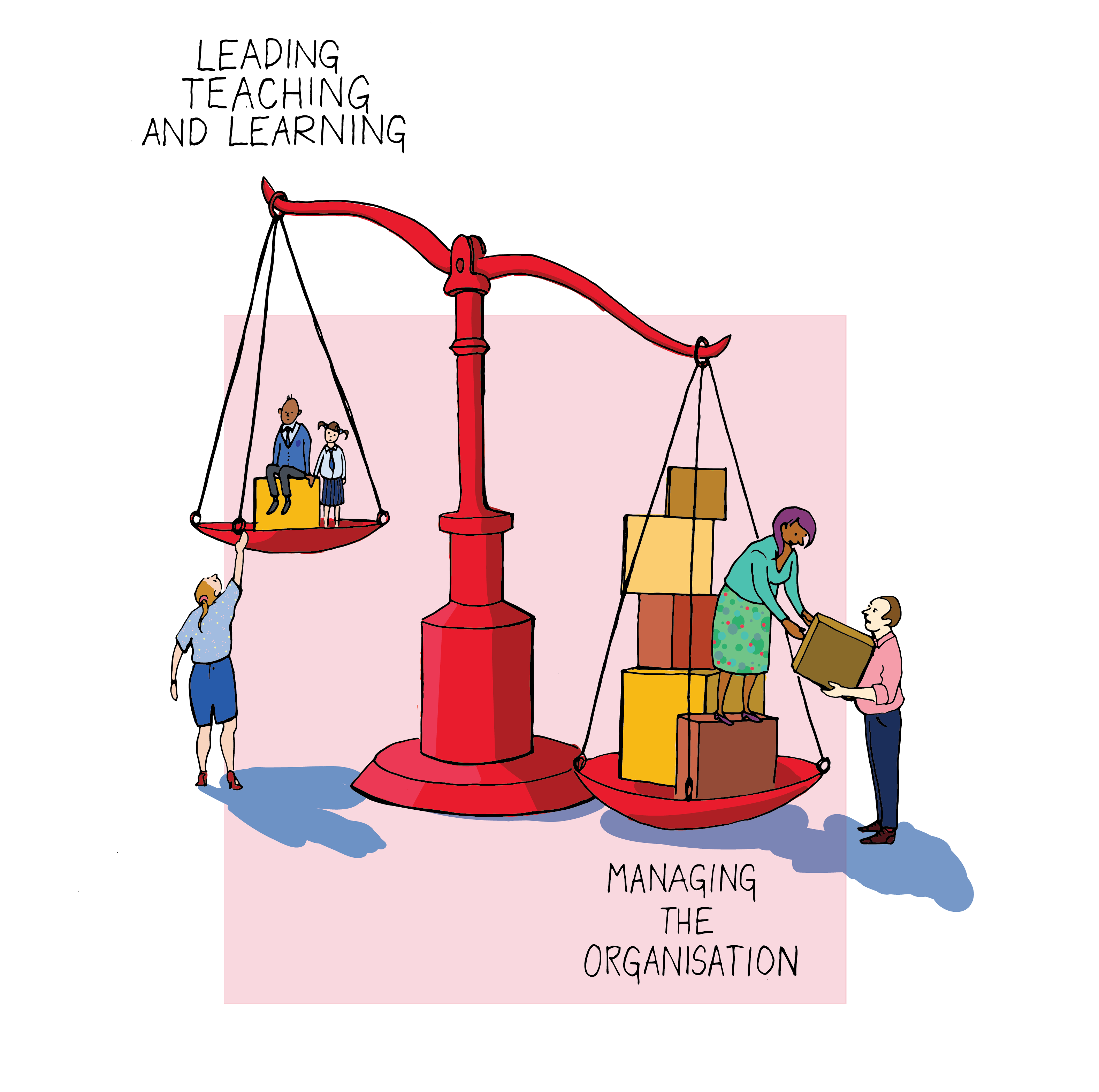Sustainable Leadership
Sustainable Leadership Project Update - June 2023
 The importance of school leadership as an influence on and key determinant of pupil learning has been clearly established. The equation is simple – effective school leadership leads to school effectiveness which, in turn, leads to better outcomes for children. It is, therefore, a priority that school leaders should be empowered and supported to deliver that effective leadership in our schools, thereby maintaining their focus on what is most closely aligned with their core purpose – leading teaching and learning.
The importance of school leadership as an influence on and key determinant of pupil learning has been clearly established. The equation is simple – effective school leadership leads to school effectiveness which, in turn, leads to better outcomes for children. It is, therefore, a priority that school leaders should be empowered and supported to deliver that effective leadership in our schools, thereby maintaining their focus on what is most closely aligned with their core purpose – leading teaching and learning.
IPPN published a research-based report on Sustainable Leadership in November 2022, entitled Primary School Leadership: The Case for Urgent Action – A Roadmap to Sustainable Leadership. This report explores the context and current reality in which school leadership is practised and experienced in Irish primary schools. We mapped and charted the expansion of the role by detailing the tasks and responsibilities that are ascribed to school leaders within Department circulars, policy guidelines and relevant education legislation. We then cross referenced those tasks and responsibilities within the quality framework for leadership and management, as detailed in the Looking at our Schools (2016) policy document. We identified which of the four domains of that quality framework into which each of the tasks and responsibilities falls.
Our analysis of the current reality was further informed by the data gleaned from the 1,000+ responses to our member survey and from the Irish Principal & Deputy Principal Health and Wellbeing survey (2022), commissioned in partnership with our sister organisation at post-primary level, the National Association of Principals and Deputy Principals.
The data is compelling:
- The 1,000+ school leaders who responded to our survey gave an average rating of 3.96 out of 10 for the sustainability of their leadership role
- The sustainability rating for teaching principalship fell to 3.53 out of 10
- 97%
These responses are better understood in the context of our analysis of Department of Education (DE) circulars that have issued since the beginning of 2016, as well as policy guidelines and relevant education legislation with reference to the quality framework for leadership and management.
- 100% of the 162 documents analysed detailed tasks and responsibilities for school leaders that fell within the domain of Managing the Organisation
- Fewer than 25% of those documents detailed tasks and responsibilities for school leaders that fell within the domain of Leading Teaching and Learning
- Tasks and responsibilities relating to Leading School Development and Developing Leadership Capacity were identified in only 18% and 14% of the documents analysed.
This further resonates with the responses from our member survey when respondents identified
- curriculum planning and implementation and
- quality assurance of teaching and learning
as two of the areas of responsibility that were most closely aligned with their core purpose,
but also as the top two areas for which they had insufficient time.
The areas of responsibility that they identified as least closely aligned with their core purpose, namely
- maintenance of buildings and grounds
- financial management
- administrative tasks,
were also the top 3 areas where they felt they spent too much of their time.
The Irish Principal & Deputy Principal Health and Wellbeing survey (2022) corroborates these findings when it identifies that the top two stressors for primary school leaders are
- sheer quantity of work and
- lack of time to focus on teaching & learning.
The data from this survey details the impact that the practice and experience of school leadership is having on the health and wellbeing of our primary school leaders. It reveals that the incidence of burnout, stress and depressive symptoms among Irish primary school leaders was almost double that of the healthy working population and more than double for sleeping troubles and cognitive stress. The researchers conclude that:
“This report presents compelling evidence that many Irish primary school leaders are struggling with complex job roles and competing job demands. Policymakers and systems administrators should engage with school leaders to identify the workload challenges that they face and provide support to enable leaders to spend time on the activities that matter most.”
Our analysis has led us to conclude that the current reality in which school leadership is practised and experienced limits leadership and school effectiveness, undermines the sustainability of the role and impacts negatively on the health and wellbeing of school leaders.
However, the report carries a message of hope, as it is solution focused. We endeavoured to explore the key issues, and identify what needs to happen to ensure school leadership of the highest quality in our schools as well as being a leadership role that is sustainable. The report:
- - details what effective school leadership looks like
- - maps out a process of systematic preparation & support for that including induction, mentoring & coaching
- - demonstrates the need for time and space to be afforded to school leaders to do the job you signed up to do
- - describes the importance of developing and embedding a culture of shared leadership
- - highlights the urgent need for reform of the Board of Management as a governance structure
Our recommendations identify
- what individual school leaders can do for themselves
- what IPPN can do
- what the system can do
to better ensure leadership effectiveness and the sustainability of school leadership roles.
The following animation provides an overview of the project and the report: Click here to access the animation.










